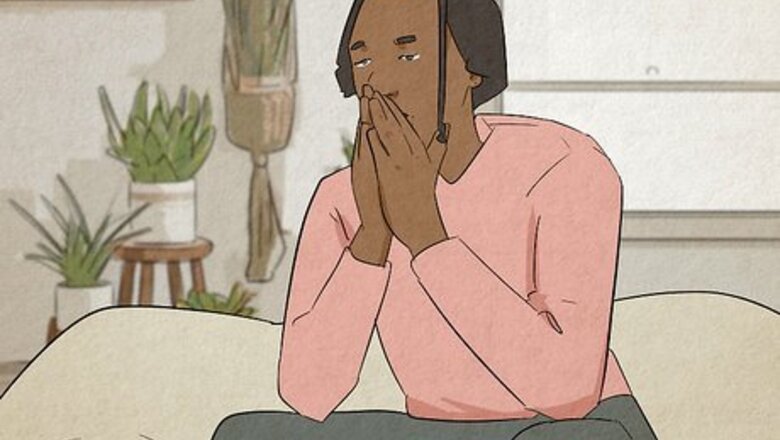
views
Handling a Failed Friendship

Allow yourself to grieve. Whether you had a sudden falling out with your friend, or the friendship simply faded away, you must acknowledge that you have lost something. Give yourself the time and space to grieve the friendship. Common ways to sort through your emotions and grieve include things like: Write a letter to your former friend, but do not send it. Instead, keep or burn the letter. The idea is only to allow you a chance to say what you need to say, not for them to read it. Talk to someone you trust. Avoid talking to mutual friends, or talking badly about your former friend. Focus on how you feel about losing the friendship. Meditate to clear your mind and focus on your emotions. The sooner you know what you feel, the sooner you can acknowledge your feelings, and move on. Reader Poll: We asked 286 wikiHow readers who’ve lost a friend, and 76% of them agreed the best way to move on is by giving yourself time to grieve. [Take Poll]
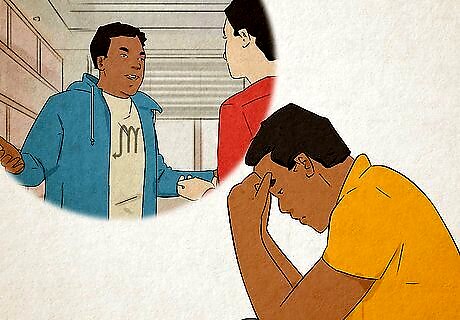
Accept some blame, but not all of it. Consider the possibility that you may have contributed to the situation. Even if you weren’t a bad friend, there may have been things that you could have done differently along the way. That said, the other person also carries this same burden. Do not take the blame for everything going wrong, but avoid the urge to say that the other person deserves all of the fault. For example, if you were hurt and said mean things to a friend because they stood you up, you should accept that you didn’t act as maturely as possible. It is also fair to note that your friend stood you up, and that they share blame in the situation.

Avoid fixating on the past. Once you have given yourself time to grieve, you should move on from the friendship. Try not to think too much about your former friend. Instead, focus on the present and what you are doing now. If you find that you are having trouble focusing on the present, make it a point to relax your mind and do things you enjoy. For example, you could spend time listening to music and hanging out with your friends to keep your mind on the present. Keep in mind that closer and longer lasting friendships may take more time to get over, and that every person grieves at their own pace. There is no set time limit for this.
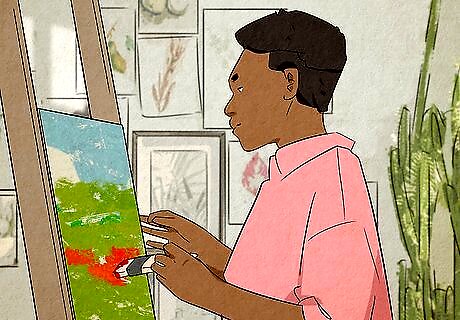
Find a new hobby, activity, or regular social event. Getting out and being active can help you keep your mind off of the lost friendship. It can also give you something to look forward to. The most important thing is that you enjoy the activity. Some ideas might be for you to join a book club, go shopping, have dinner with friends, do something creative, or play a sport.

Nurture other friendships. You can now spend the time that you used to focus on your old friendship and pour it into others. This can be directed towards other friends, or spent making new friends. Talk to people at school, work or in your neighborhood. You may be pleasantly surprised how much you have in common with them. Avoid being clingy or overly demanding of your other friends. This can overwhelm someone quickly. If you are initiating a new friendship, just saying ‘Hi’ to someone you don’t know is often enough to spark a good conversation.

Focus on yourself. Revenge fantasies might amuse your sorrowful side, but in reality, they just drain energy that you could be using to have fun. If you focus on doing things you enjoy and making yourself happy, you will have less time to obsess about your former friend. If you are having trouble focusing on positive things, distract yourself by spending time with other friends. For example, you could spend time focusing on your school work or your hobbies so that you can have more success in those areas of your life. Becoming more physically active can help if you are having a lot of anger.

Resist talking about your former friend. Whether you make up a rumor or tell an ugly truth, talking poorly of your former friend only makes you look bad. Others will see this as petty and immature, and hesitate to get close to you while you are behaving that way. Constantly putting down your old friend also keeps you emotionally attached to the friendship you lost and prevents you from moving on.
Losing a Friend to a Move

Keep a casual relationship with your former friend. If possible, try to arrange to see your friend a time or two each year. Keep in touch over the phone by calling and texting. You can also utilize social media to stay as close as possible to each other. This allows the two of you to remain connected without having to expend unreasonable amounts of time, energy, and money to keep the friendship afloat. Avoid putting unreasonable expectations on your friendship. Talking once a week or once a month might be realistic, while talking every day is likely to end quickly.
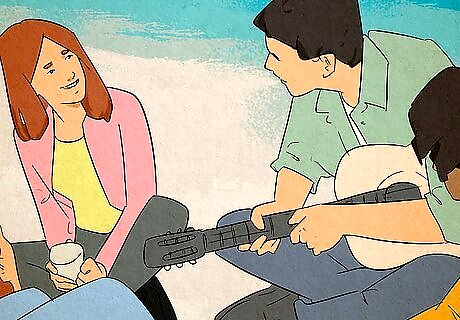
Explore your new world. Whether you have moved to a new location or stayed behind when your friend left, your world has changed. This is an opportunity for exploration and excitement. Go out to places you’ve never been before (this should be easy if you are the one that moved). Try to meet new people in the area, and then tell your old friend about some of the great memories that you’ve made. This should not be done in an attempt to make your friend jealous. Just stay connected with them by talking about the things you do now.
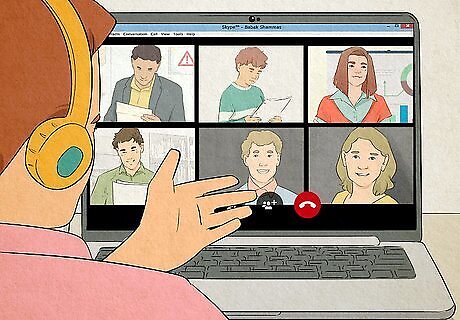
Join a club or group. Clubs, groups, and other affiliations give you a chance to meet new people that have interests similar to yours. This is a great place to look for potential friendships and have some fun. You can look in your local stores and coffee shops for advertisements and postings about when and where different clubs meet. You might also find the information in your newspaper or online. You can even join online groups if you struggle to find something fun in your area, or just want to start online.
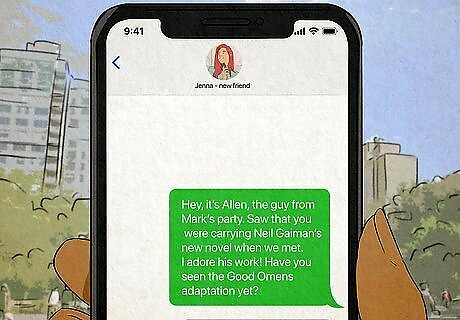
Find new friends. There is no need to rush into new friendships, but you should be open to them. Accept an invitation from someone you’ve met recently, or reach out and invite them to something you enjoy. Friendships rarely happen instantly, but taking the first step towards making new friends is crucial for you to keep a healthy frame of mind. If you ignore your need to make new local friends, you might end up demanding too much of your long distance friendship and draining your old friend. This could lead to losing touch completely.
Coping with the Death of a Friend
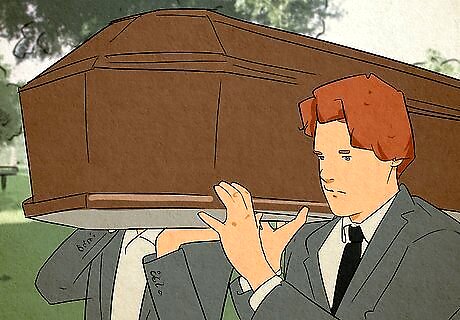
Take time to mourn your friend. Attend the funeral and/or memorial service of your friend. Write a letter to your departed friend to get your feelings out and in the open. You should realize that it is normal to feel confused and hurt after a friend dies, and avoiding that pain will not make it go away. Instead, recognize your pain so that you can move on and heal.
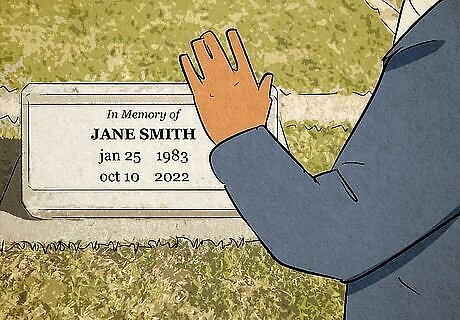
Celebrate the life of your friend. Many people focus memories of friends and family around how or when they died. Remembering them in this way can be painful. Instead, talk about stories of their life. Remember the things that you did together, and the things that they enjoyed doing the most. You might even set aside a day each year (their birthday for example) to visit their resting place or just have a moment of silence in their honor. Celebrating your friend is different from mourning them. It should not be about the pain of your loss, but about the joy of having had them in your life.

Try something new. Once you have had a chance to grieve, it will be time to start moving past the pain. Do something lively and exciting to distract yourself, and little by little, you will start to feel normal again. When thoughts of your friend do come up, refocus them to be about happy memories rather than painful ones. The time it takes a person to mourn will be different depending on the person and the relationship they had with their friend. You are not on any specific timetable. For example, you could try activities like exercise, going out with friends, trying new foods, or travelling to new places. Make sure to be gentle with yourself if you find that your grief comes in waves over time.
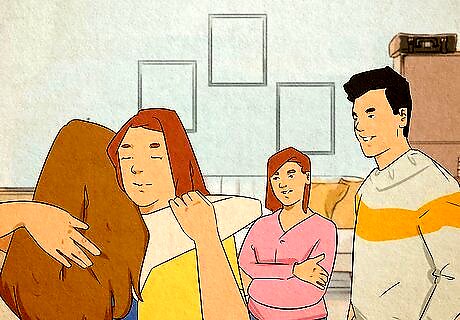
Lean on other friends and family. Talk to people that you trust. You can open up to them about how you feel, or simply talk about other things to give your mind a break. If they offer to take you out or spend time with you, take them up on the offer and make an effort to enjoy yourself, even if only for a short time.
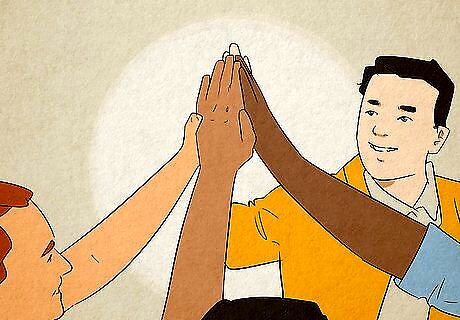
Join a support group. A support group can help you deal with the loss of your friend. You will meet other people that are going through similar situations, and hear their stories. Even if you do not gain any advice or close friendships, you will understand that you are not the only person going through this kind of pain. Knowing that you are not alone is often enough to give you the strength to keep going. Look in your newspaper, ask around town, or check online to find support groups that are a good fit.
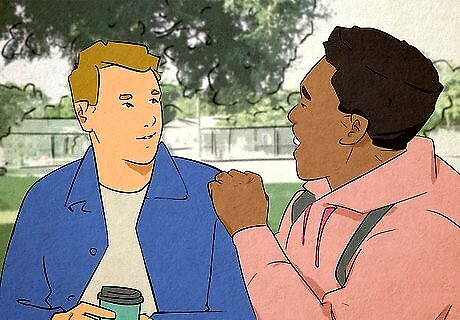
Allow yourself to find happiness. Find things to smile about. Do something for someone, raise money for charity, or just do something that you think is fun. Realize that your life does go on, and that your friend would want you to enjoy it. Expect to still have bad days, but strive to have good days in the meantime. If you are suffering from severe depression, having thoughts of hurting yourself or others, or cannot move past the loss of your friend, you may need to seek professional help. Your doctor can help you manage your emotions or recommend you to a mental health professional. If you are considering hurting yourself, then call or text 988 to talk to someone any time.












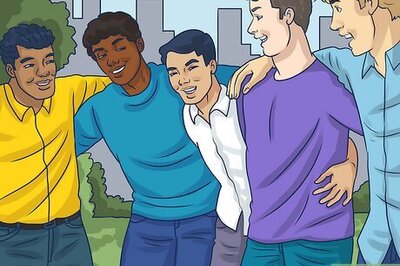




Comments
0 comment